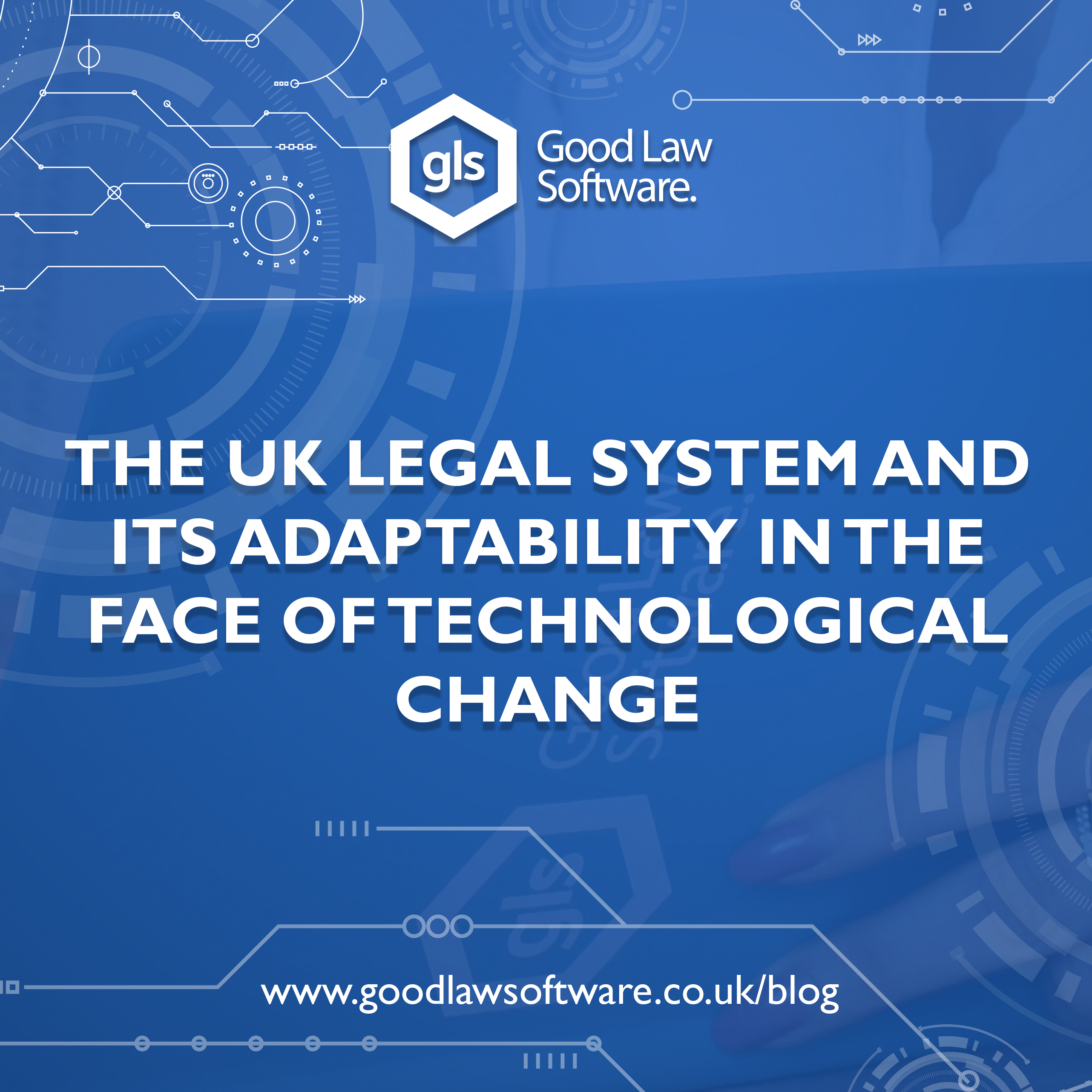The UK Legal System and its Adaptability in the Face of Technological Change
The UK legal system is malleable to technological shifts, but to what extent?

Written by Fatima Freifer
Blogger

The legal services market is undergoing widespread disruption as a result of a more liberal regulatory environment, increased commercial pressures and increased technological adoption. Technology lawyers must be trusted advisers to businesses in disruptive industries and are required to stay current on trends and developments.
The advantage of English common law is that, rather than relying on an inflexible legislative intervention process, judges apply and adapt existing principles by analogy to address new challenges as they arise. As a result, it can provide the certainty and predictability that global business requires, as well as adapt to and deal with rapidly changing technologies.
Law Tech in the United Kingdom
Lawtech remains a thriving sector for emerging technologies and helps to improve operations and processes. In addition to being willing to address issues raised by new commercial mechanisms, English courts are increasingly utilising technology to improve their operations and processes. The Commercial Court (the primary court for business disputes) has taken the lead. It was one of the first courts in the world to use video-link evidence in trials, to use electronic documents in trials and to implement fully electronic filing.
The Court’s technological adaptability was recently highlighted by its successful response to the pandemic. All hearings in the Court were held in a physical courtroom on March 18, 2020. On March 20, 2020, the Court heard its entire list entirely remotely. Since then, nearly all of the cases on the docket have been heard as scheduled. [1] As technology drives change, the benefits of common law and the English courts’ embrace of technology ensure that England will remain a leading jurisdiction for resolving business disputes.
LegalTech Developments Around the World
The number of legal-specific technology applications has grown significantly in recent years, to the point where legaltech is now recognised as a distinct strand of technology in its own right. It has also grown into a truly global phenomenon, with homegrown legal startups sprouting up in every corner of the globe. However, while the sector is expanding, the legaltech economy remains small in comparison to the overall size of the legal sector. And, while investment in legaltech businesses is increasing year after year, it is dwarfed by investment in technology in other sectors, such as financial services.
Understanding the legaltech development cycle and how tech solutions emerge can help us understand where there may be roadblocks to more rapid development of legaltech. This can help to point out where legal regulators might be able to help remove barriers. However, there is little evidence that legal regulators have focused on legaltech in any depth. Several trends indicate that a tipping point has been reached, and regulators can no longer ignore technological developments.[2]
These trends include the establishment of lawyer selection and legal advice marketplaces around the world. Many of these marketplace business models may disregard existing codes of conduct in jurisdictions where lawyers and non-lawyers are not permitted to fee share. Legal technology is crossing borders, primarily through the activities of legal technology suppliers, but the most successful consumer-facing legal advice marketplaces are also expanding into new jurisdictions. This could jeopardise regulators’ ability to regulate freely in the future.
Universities are increasingly offering courses that combine law and technology, implying that there is a growing demand for lawyers who are technologically savvy. This demonstrates that legaltech is making inroads into the mainstream.
Legaltech startups face a difficult environment because they must deal not only with the challenges that all startups face, but also with regulatory challenges that are unique to the sector and fragment and limit their scope of action. Regulators may face increased scrutiny if they fail to respond effectively to the demands of legaltech and impede society’s ability to capitalise on the potential benefits it may bring.
Legal technology has come a long way in the last decade and the pace only seems to be picking up. By the early 2000s, many firms had infrastructure comparable to their corporate clients, and technology had become woven into the fabric of law firms. Last year, a Scottish lawyer became the first in the UK to be accredited in legal technology, ushering in a new era in lawtech.
Adaptability in the face of the pandemic
In response to Covid-19, the Law Society launched their ‘Return, Restart, Recovery’ campaign to support the national recovery effort and reinforce the role that solicitors and their firms will play, with one key focus being ‘lawtech support and advice for law firms that may be struggling with technology.’ [3]
A massive amount of data is generated by the legal system. Judgements, precedents, and legislative interpretations all generate more data, and among it will be facts and insights that could help win a legal argument or be the key to unlocking a specific transaction. Machines are better at finding relevant information and are more accurate in the midst of the massive amount of data available.
In an experiment conducted by LawGeex, artificial intelligence tools finished with an average accuracy rate of 94 percent (the highest score being 100 percent), with human lawyers scoring an average of 85 percent (the highest score being 97 percent), and while that accuracy gap is relatively (and reassuringly) narrow, the difference in time taken was not. The human lawyers took 92 minutes on average to review the NDAs, while the machine took only 26 seconds.[4]
Conclusion
Resisting technology, as history has shown, will only impede progress and viability. As the legal landscape shifts, firms must secure their position by utilising available technology, thereby improving efficiency, saving money, increasing profitability and, ultimately, giving them a competitive edge in a crowded space.
Overall, there is a strong desire to understand how advancements in the lawtech marketplace will affect the profession’s work and working processes, as well as what this means for the types of tasks and skills that members may be required to perform in the future.
As technology continues to advance at an exponential rate, new law firms and in-house legal teams will need to influence new regulation. A lot of new law will be written over the next few decades, and a lot of old law will be repealed.
References
[1] The UK legal system: embracing technological change, Jeremy Sharman, Priyan Meewella, Matthew Pack, Nov 2020, https://www.twobirds.com/en/news/articles/2020/global/the-uk-legal-system-embracing-technological-change
[2] The Use and Regulation of Technology in the Legal Sector beyond England and Wales, Alison Hook Hook Tangaza, Jul 2019, https://www.legalservicesboard.org.uk/wp-content/uploads/2019/07/International-AH-Report-VfP-4-Jul-2019.pdf
[3] Evolution of the law firm: why clients demand that you embrace new technology, Legal Futures, Oct 2020, https://www.legalfutures.co.uk/features/evolution-of-the-law-firm-why-clients-demand-that-you-embrace-new-technology
[4] Innovation and the disruptive impact of technology on the legal sector, Andy Layton, Rachel Jones, Mar 2019, https://www.womblebonddickinson.com/uk/insights/articles-and-briefings/innovation-and-disruptive-impact-technology-legal-sector








